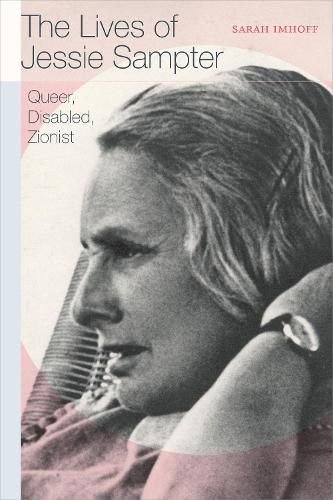Readings Newsletter
Become a Readings Member to make your shopping experience even easier.
Sign in or sign up for free!
You’re not far away from qualifying for FREE standard shipping within Australia
You’ve qualified for FREE standard shipping within Australia
The cart is loading…






In The Lives of Jessie Sampter, Sarah Imhoff tells the story of an individual full of contradictions. Jessie Sampter (1883-1938) was best known for her Course in Zionism (1915), an American primer for understanding support of a Jewish state in Palestine. In 1919, Sampter packed a trousseau, declared herself married to Palestine, and immigrated there. Yet Sampter’s own life and body hardly matched typical Zionist ideals. Although she identified with Judaism, Sampter took up and experimented with spiritual practices from various religions. While Zionism celebrated the strong and healthy body, she spoke of herself as crippled from polio and plagued by sickness her whole life. While Zionism applauded reproductive women’s bodies, Sampter never married or bore children; in fact, she wrote of homoerotic longings and had same-sex relationships. By charting how Sampter’s life did not neatly line up with her own religious and political ideals, Imhoff highlights the complicated and at times conflicting connections between the body, queerness, disability, religion, and nationalism.
$9.00 standard shipping within Australia
FREE standard shipping within Australia for orders over $100.00
Express & International shipping calculated at checkout
In The Lives of Jessie Sampter, Sarah Imhoff tells the story of an individual full of contradictions. Jessie Sampter (1883-1938) was best known for her Course in Zionism (1915), an American primer for understanding support of a Jewish state in Palestine. In 1919, Sampter packed a trousseau, declared herself married to Palestine, and immigrated there. Yet Sampter’s own life and body hardly matched typical Zionist ideals. Although she identified with Judaism, Sampter took up and experimented with spiritual practices from various religions. While Zionism celebrated the strong and healthy body, she spoke of herself as crippled from polio and plagued by sickness her whole life. While Zionism applauded reproductive women’s bodies, Sampter never married or bore children; in fact, she wrote of homoerotic longings and had same-sex relationships. By charting how Sampter’s life did not neatly line up with her own religious and political ideals, Imhoff highlights the complicated and at times conflicting connections between the body, queerness, disability, religion, and nationalism.